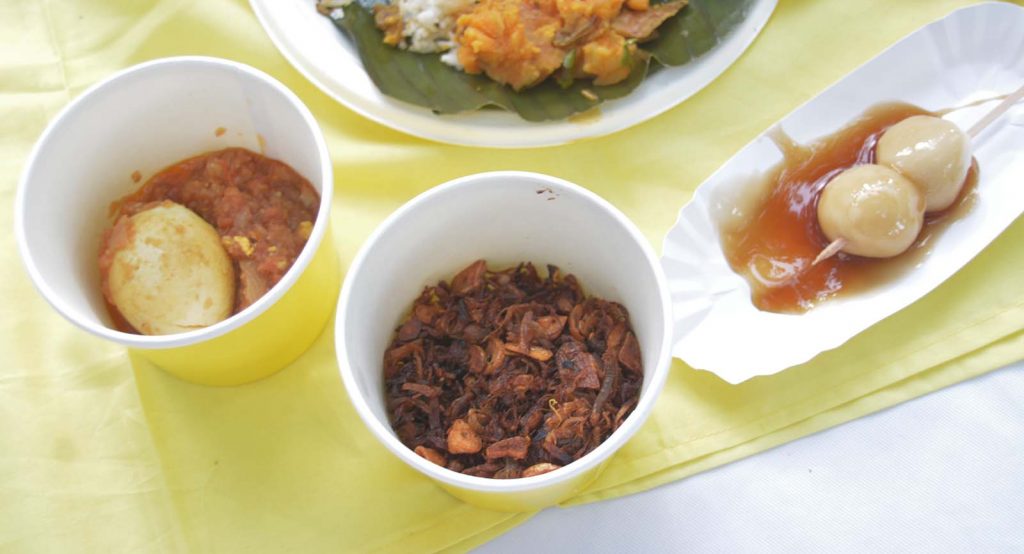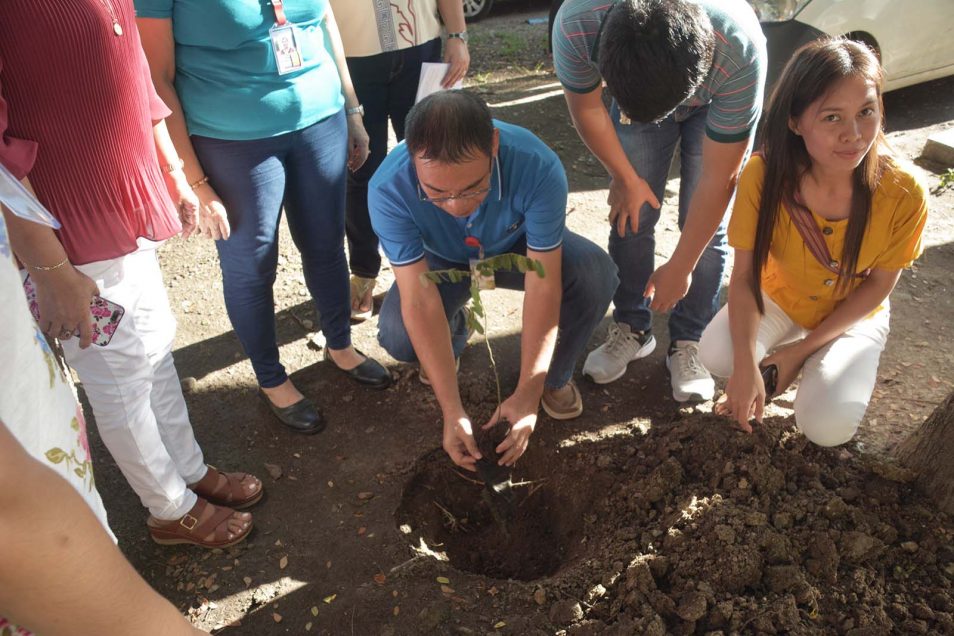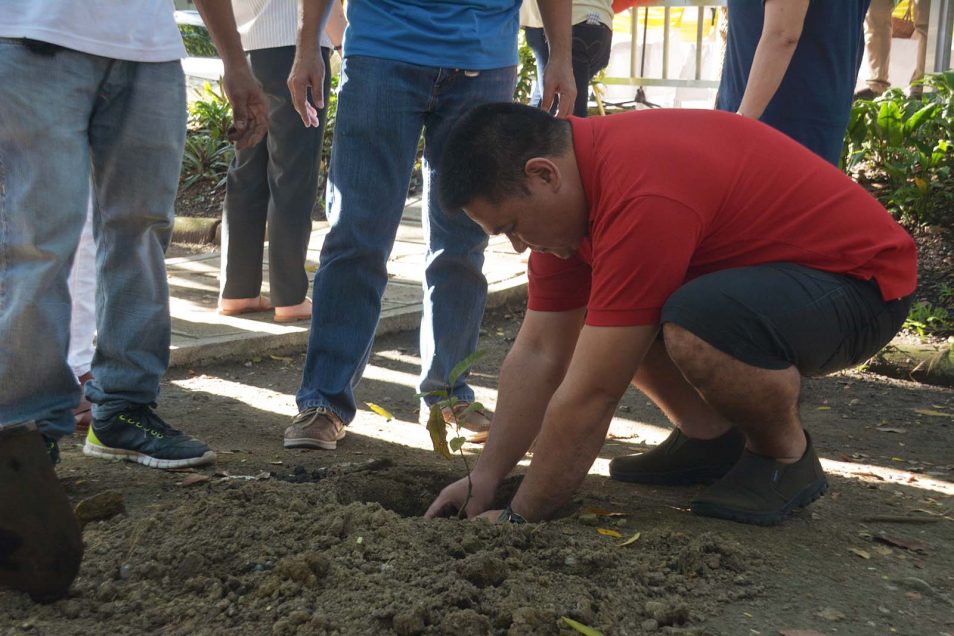
OSS holds International Food Fair, tree planting

Students from Taiwan offer free fried mochi to attendees, including Moses Joshua B. Atega (rightmost), International Students adviser, who served as the host during the closing fellowship program of the Office of Student Services (OSS) Month and International Cultural Exchange Month.
The Silliman University (SU) Office of Student Services (OSS) organized the first International Food Fair open to the SU community and a tree planting activity, March 9, 2020 at the Alumni Tree Park.
The activities were part of the closing fellowship program for OSS Month and International Cultural Exchange Month, which are annual celebrations in SU that aim to encourage fellowship among the diverse student body and highlight the various student services on campus.

Students from Japan sell dango mochi to fellow students.
SU students from Taiwan, Korea, Somalia, India, Nigeria, Japan, Myanmar, and the US prepared and sold food from their home countries’ local cuisine.

(L-R) Egg curry and garlic flakes by students from Myanmar and dango mochi by students from Japan.
“Every year, there’s always a food festival, but this is the first time that we opened it to the public, upon the request of the Dean of Students. Before, we only get to serve it to the Silliman church [attendees]…It’s the first time we’re doing it for the Silliman community,” said Moses Joshua B. Atega, SU International Students adviser.
Heads and staff of offices under the OSS also planted native trees and hibiscus plants at the Alumni Tree Park, located behind the Oriental Hall.

Princeton Apura (center, in blue), Student Housing and Residence Division (SHRD) head, plants a Cassia grandis seedling with SHRD staff.

Abe Cadeliña, Student Organizations and Activities Division (SOAD) Officer-in-Charge, plants a Canarium asperum seedling with SOAD staff.
Atega said the six offices under the OSS each planted one seedling among the following tree species: Philippine Cedar or Red Cedar (Toona calantas), Canarium asperum, and Cassia grandis.Atega added that the tree species were chosen by Rene “Tatay Ite” Vendiola, a Negrense conservationist and proprietor of the Liptong Woodland at Bacong, Negros Oriental, because they could survive in the soil dominated by the non-endemic Mahogany trees planted in the park when it was started by SU alumni in the 1970s.


